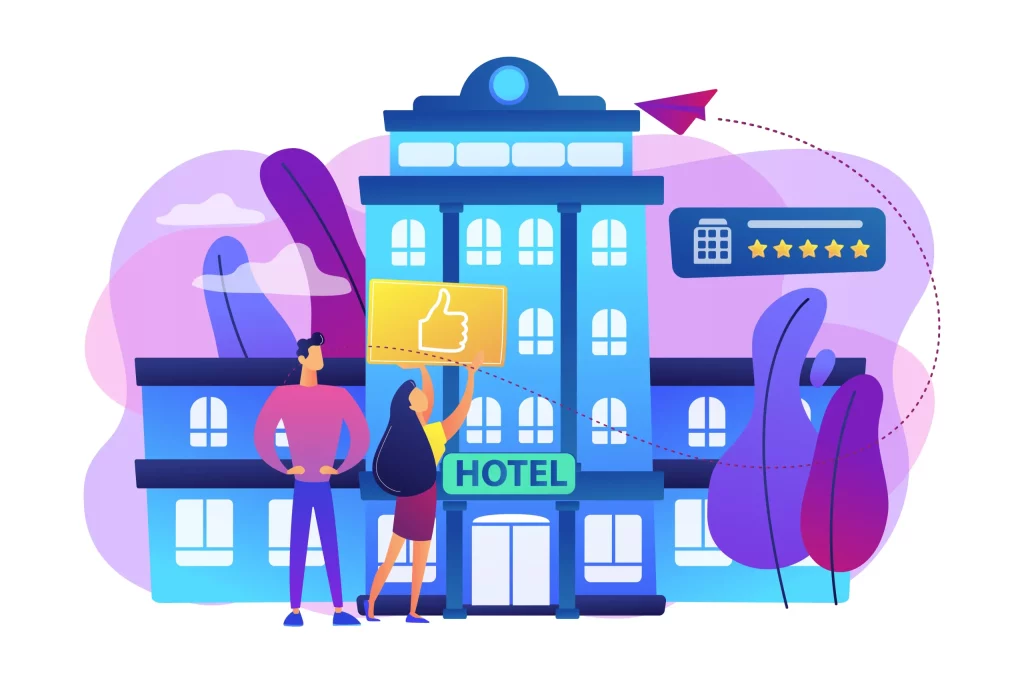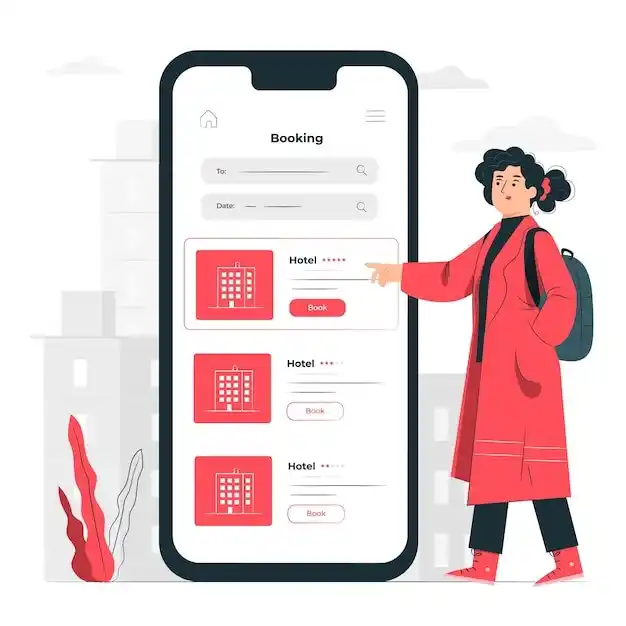
In today’s digital age, it is more important than ever for hospitality businesses to take SEO seriously. With so many people now using the internet to research and book their holidays, hotels need to make sure they are easy to find online. Attracting guests is not just about having a great website; it is also about ensuring that your site appears high up in search engine results. Hospitality businesses that don’t invest in SEO are missing out on a huge opportunity to reach potential guests. By making a few simple changes to your website and online presence, you can dramatically improve your chances of attracting travellers and generating bookings. So, if you’re serious about growing your business, there’s no time to waste.

Today the vast majority of hotel bookings are made online
Today, the vast majority of hotel bookings are made online. Don’t ignore this trend – be visible where your potential guests are searching. Take advantage of this by ensuring your property is listed on all the major travel websites and that your website is optimised to ensure you appear high in search engine results. Make sure your website is easy to use and provides all the information potential guests need to make a booking. And finally, don’t forget to include clear call-to-action buttons so that visitors can easily find your contact details or book a room with just a few clicks. By following these simple tips, you can make sure your hotel gets noticed online and benefits from the growing trend for online bookings.

SEO Tips to consider for the Hospitality Sector
To optimise your hotel or hospitality website for the search engines, here are a couple handy tips to consider:
1) First, find a good SEO agency you can work with
Track Record: Look for an agency that has a proven track record of success. A good place to start is by looking at their case studies and results. An agency that has delivered positive results for their clients in the past is more likely to be able to do so for you.
Communication: Make sure that the agency you choose is easy to communicate with. You should be able to get in touch with them when you need to, and they should be responsive to your questions and concerns.
Transparency: It’s important to work with an agency that is transparent in their reporting. You should be able to see how your campaign is performing on a regular basis, and the agency should be open about any changes they are making to your strategy.
2) Add a FAQ section
Adding a FAQ section to your website is a great way to provide travellers with answers to the questions they are most likely to have. This can be especially useful if you offer accommodation or travel services that are not well known or popular. By including a FAQ section, you can help potential travellers to feel more confident about booking with you. Additionally, a FAQ section can help to reduce the number of customer service inquiries you receive, as travellers will be able to find the answers they are looking for without having to contact you directly. Ultimately, adding a FAQ section is an easy way to make your website more user-friendly and improve the overall customer experience.
3) Try and ensure your pages load quickly
A fast-loading website is essential for a great user experience. If your pages take too long to load, users are likely to click away before they even have a chance to see what you have to offer. A slow website can also cost you bookings and leads – nobody wants to wait around for a slow page to load. In addition, a slow loading website can also negatively impact your search engine ranking. Try and ensure your pages load quickly to reduce your bounce rate and improve your user experience.
4) Highlight your positive reviews
Excellent reviews from previous guests are one of the most important ways to attract new bookings. potential guests want to see that others have had a great experience at your property, and positive reviews can build trust and encourage them to book with you. There are a few different ways to highlight your positive reviews. One is to prominently display them on your hotel website or vacation rental listing. You could also create a separate page on your website devoted to displaying guest reviews, or link to positive reviews left on third-party sites. If you have any particularly glowing reviews, you could also feature them in marketing materials or social media posts. Ultimately, drawing attention to your positive reviews is an effective way to increase bookings and build trust with potential guests.

Conclusion
SEO & just general online marketing for hotels is critical in today’s competitive hospitality marketplace. Consumers are increasingly turning to the internet to find accommodation, and businesses that leverage a good online presence can reap substantial rewards. SEO is an important part of building a strong online presence, and it should not be ignored. Especially not by businesses in the hotel & hospitality sector. By optimizing your website for search engines, you can achieve greater exposure to the marketplace, build your brand more effectively and generate more bookings. In today’s business environment, an investment in SEO is an investment in the future success of your business.
